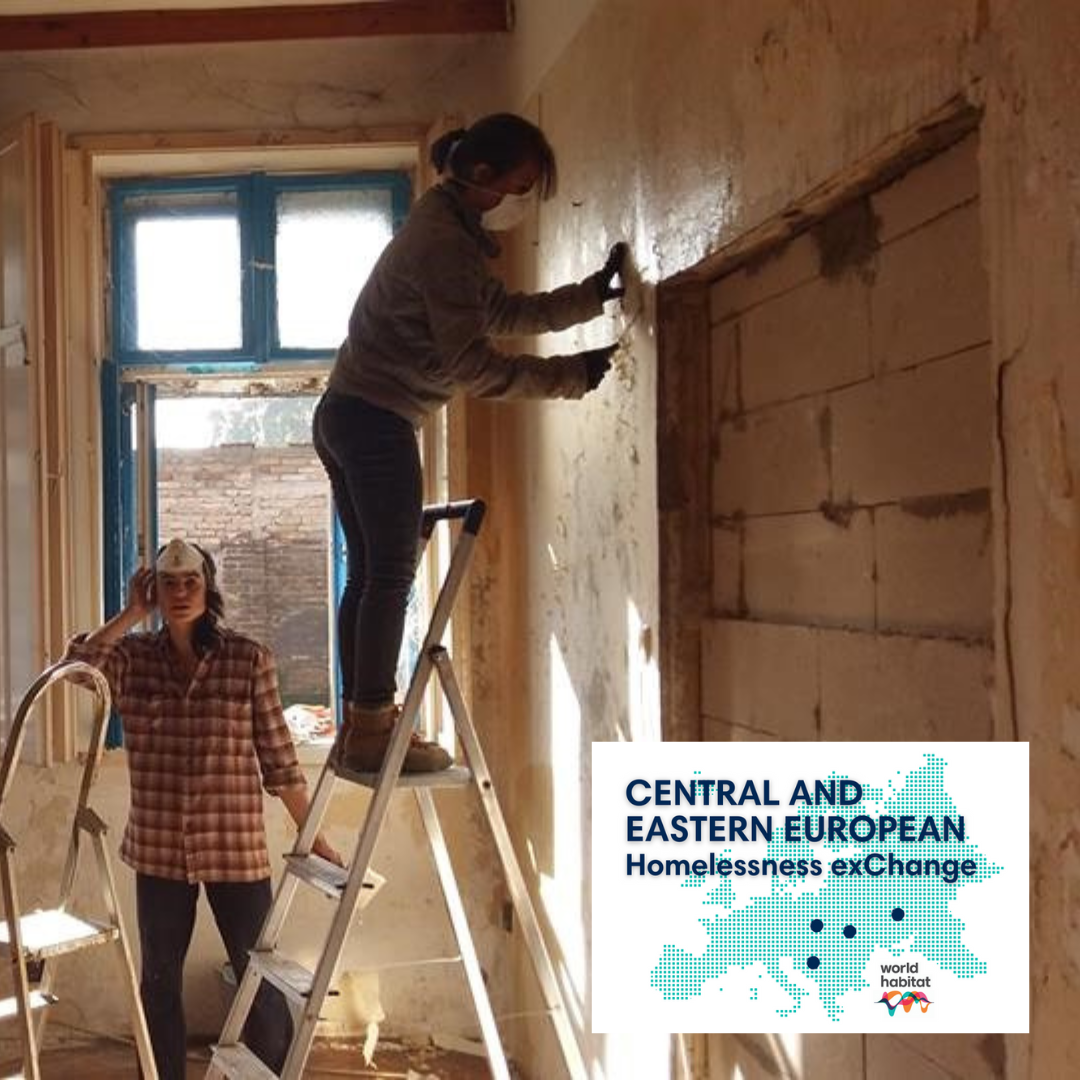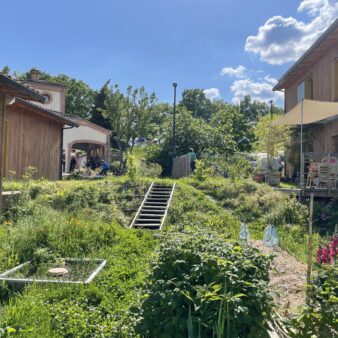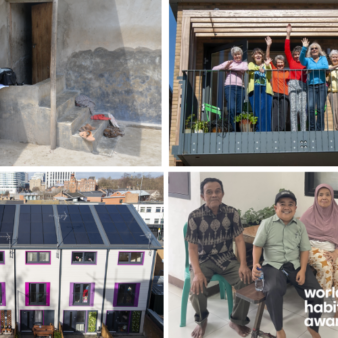
Housing provision is a huge challenge in the Central and Eastern European (CEE) region meaning that for most there is no effective way out of homelessness. The fall of Communism and rapid privatisation led to many homes being sold at vastly reduced prices. Home ownership rates are at between 91% and 98% in these four countries despite the EU average being 69%. With little new housing being built the region is now experiencing a housing supply crisis.
In Budapest last month, as part of a new exChange Programme with partners working in the region, we met with Anna, a grandmother, who had been living in an informal settlement in the forests of Budapest’s suburb, with no heating, running water or mains electricity. Living with her husband, son, his partner and their two children the family were very overcrowded and family relations had broken down. The children were at risk of being removed from the family.
Multiple generations of families and extended families are living in wildly overcrowded dilapidated housing, and informal settlements in outer suburbs or forests are not uncommon. With so little social housing and decades of underfunding of maintaining or building new social housing stock, the supply of housing that can be used for social purposes is a fraction of what is needed.
Fortunately, Anna was referred to From Streets to Homes, who helped the family move into a new home – a municipal flat which was refurbished through the organisation’s From Huts to Homes Programme. Both Anna’s husband and son helped renovate the property. The family were allocated a support worker, Gabor who is there to support Anna for as long as is needed. Initially a lot of support was needed, but now they are in contact less, particularly as Anna has built up her own networks with peers who attend a special group hosted by the organisation for women who share similar experiences of homelessness. Anna and her family now have a secure home, that is theirs for as long as they need it.
Lack of strategies to tackle homelessness
On a wider level, many of our partners are working in countries without political support, where homelessness is not prioritised, and where there are weak national or no local strategies to genuinely tackle homelessness. Some of our partners are working in areas where street homelessness is actively criminalised, and all are working within contexts where there is a lack of public support or understanding of the challenges of homelessness. Data and evidence on numbers and experiences of homelessness in the region is unreliable, so the scale of the problem is not understood.
In addition to this, our Romanian, Slovakian and Hungarian partners have also seen a huge increase in demand for their services from refugees fleeing the conflict in Ukraine.
However, there is reason to be optimistic and evidence shows that solutions to homelessness do exist. We are seeing an increase in Housing-led approaches, of projects supporting the most marginalised of communities’ access housing, of the voices of lived experience influencing policy and practice, and of organisations gathering robust data and evidence to make the case for structural and policy change. Despite a challenging context our partners in Romania (Carusel), Slovakia (Oz Stopa Slovensko), Hungary (From Streets to Homes Association) and Croatia (Croatian Homeless Network) remain committed to continue advocating for change and are delivering services and programmes that make a difference to people experiencing homelessness.
World Habitat’s mission is act as a catalyst for change, and last month we kicked off the Central and Eastern European (CEE) Homelessness ExChange, part of the European End Street Homelessness Campaign. This targeted piece of work within the campaign brings together partners from Slovakia, Croatia, Romania and Hungary providing a space to develop regional approaches to ending homelessness.
During this ExChange visit to Budapest, we learnt more about such services, hearing from our hosts From Street to Homes about their Housing First Programme, From Huts to Homes. We also had an opportunity to sit down with the Vice Mayor of District 10, with whom From Streets to Homes has a long-standing partnership and who was instrumental in supporting the start of their innovative housing programme renovating disused housing for and with people with experience of street homelessness. This session helped to understand the drivers for local decision makers to trial and support innovative pilots and started a conversation about how to best influence locally. We also heard more about their innovative social housing agency, working in the private rented sector to increase long-term affordable accommodation, and how they manage relationships with private landlords.
But this is just the start. Throughout 2023 we will continue to support the transfer of knowledge in the Central and Eastern European region through this ambitious ExChange programme, supporting our partners to advocate for and implement change. Our focus will be particularly around the implementation of Housing led approaches in the region and we will work with our colleagues to ensure that they are able to access independent and robust data and evidence to drive change and ensure that when homelessness does occur, it is rare, brief and non-recurring.




Join the discussion